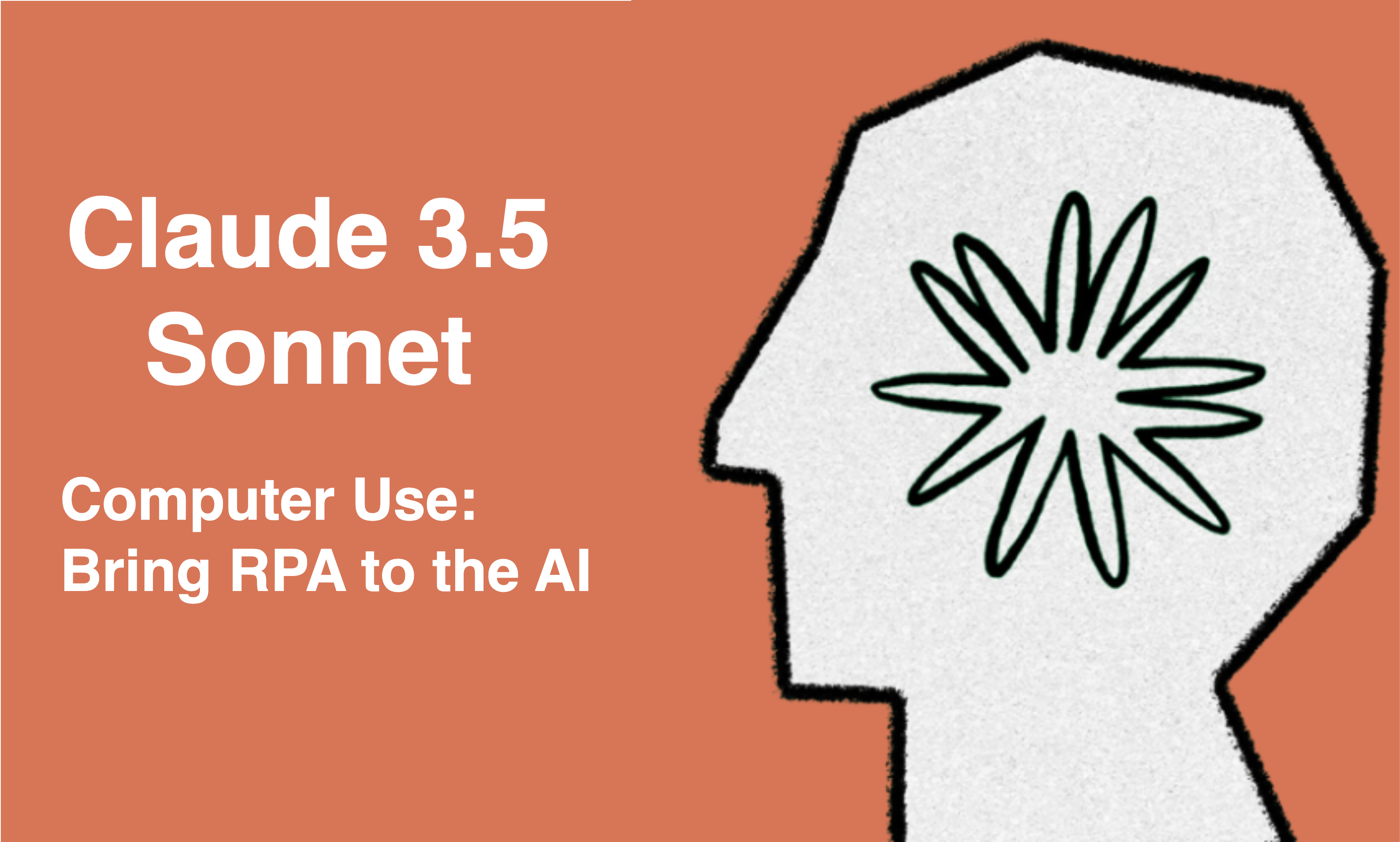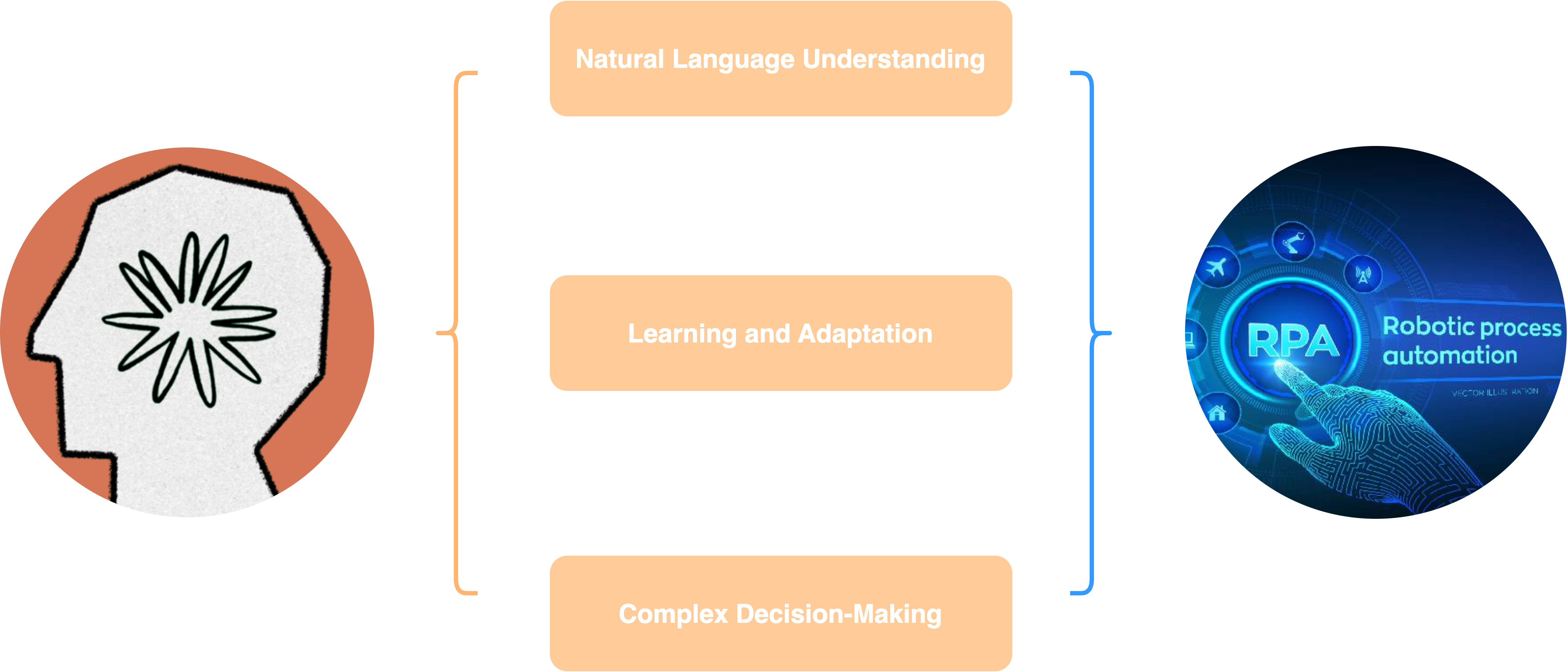Claude Computer Use - Bring RPA to the AI Age

Robotic Process Automation (RPA) has been a game-changer for businesses looking to streamline operations and reduce manual workload. However, traditional RPA solutions have limitations that prevent organizations from achieving full automation potential. Enter Claude, an advanced AI assistant that's reshaping how we think about RPA. In this article, we'll explore the challenges with traditional RPA, delve into how Claude enhances automation, and discuss what this means for the future of business processes.
The Problem with Traditional RPA
RPA has been instrumental in automating repetitive tasks. It mimics human actions to execute rule-based processes without human intervention. While this sounds ideal, there are significant hurdles that organizations face:
- Limited Scope of Automation: Traditional RPA is effective for structured, repetitive tasks but struggles with unstructured data or complex decision-making.
- High Maintenance Costs: Bots require constant updates to keep up with changing interfaces and processes, leading to increased maintenance efforts.
- Lack of Cognitive Abilities: Standard RPA lacks understanding and learning capabilities, making it inflexible in dynamic environments. These issues limit the efficiency gains that businesses can achieve through automation, leaving a gap between what's possible and what's practical.
The Frustration of Unrealized Potential
Businesses invest in RPA with the hope of significant returns in efficiency and cost savings. However, the limitations of traditional RPA often lead to:
- Process Bottlenecks: Inability to handle exceptions or unstructured data causes delays and errors.
- Employee Dissatisfaction: Staff become frustrated when automation doesn't alleviate workloads as expected.
- Stagnant Innovation: Companies may hesitate to adopt new processes if automation cannot adapt, hindering growth. The promise of RPA becomes a double-edged sword—without the ability to handle complex tasks, it fails to deliver on its full potential, causing more headaches than solutions.
Introducing Claude: The AI-Powered Solution
Claude is an AI assistant developed to augment the capabilities of traditional RPA. By integrating artificial intelligence with automation, Claude addresses the shortcomings of standard RPA systems.
How Claude Enhances RPA
- Natural Language Understanding: Claude can interpret and process unstructured data, including text and speech, enabling it to handle a wider range of tasks.
- Learning and Adaptation: Through machine learning, Claude improves over time, adapting to new processes without extensive reprogramming.
- Complex Decision-Making: Claude can analyze data, recognize patterns, and make informed decisions, allowing automation of tasks that were previously too complex.

Key Features of Claude
| Feature | Traditional RPA | Claude-Enhanced RPA |
|---|---|---|
| Handles Unstructured Data | ❌ | ✅ |
| Learns and Adapts Over Time | ❌ | ✅ |
| Processes Natural Language | Limited | Advanced |
| Makes Complex Decisions | ❌ | ✅ |
| Requires Frequent Updates | ✅ | Reduced |
By bridging the gap between simple task automation and intelligent process management, Claude transforms RPA into a more powerful tool.
Real-World Applications of Claude in RPA
Customer Service Automation
Traditional RPA can automate parts of customer service, like sending automated responses. Claude takes it further by understanding customer inquiries, providing personalized responses, and even detecting sentiment to escalate issues when necessary.
Invoice Processing
Handling invoices involves various formats and data types. Claude can read and interpret different invoice formats, extract relevant data, and input it into financial systems accurately, reducing errors and processing time.
Compliance Monitoring
In heavily regulated industries, staying compliant is crucial. Claude can monitor transactions and communications for compliance, flag inconsistencies, and suggest corrective actions, ensuring businesses stay on the right side of regulations.
Benefits of Embracing Claude in RPA
- Increased Efficiency: Automate more processes, including those that were previously too complex.
- Cost Savings: Reduce the need for manual intervention and decrease maintenance costs.
- Enhanced Flexibility: Quickly adapt to new processes or changes in existing ones without significant reprogramming.
- Improved Accuracy: Minimize errors by allowing Claude to handle tasks requiring understanding and decision-making.
Overcoming Implementation Challenges
Adopting Claude-enhanced RPA isn't without its hurdles. Companies may face:
- Integration with Existing Systems: Ensuring Claude works seamlessly with current workflows.
- Data Security Concerns: Handling sensitive information requires robust security measures.
- Employee Training: Staff need to understand how to work alongside AI systems.
Strategies for a Smooth Transition
- Pilot Programs: Start with small projects to test integration and effectiveness.
- Employee Engagement: Involve staff early in the process to gain buy-in and reduce resistance.
- Partner with Experts: Work with AI specialists to ensure proper implementation and security.
The Future of RPA with AI
The integration of AI like Claude into RPA marks a significant shift in automation capabilities. Companies that embrace this technology stand to gain a competitive edge through:
- Hyperautomation: The ability to automate virtually any process, regardless of complexity.
- Data-Driven Decision Making: Leveraging insights gathered by AI to inform business strategies.
- Scalability: Easily expand automation efforts as the business grows without proportional increases in cost or effort.
Conclusion
The limitations of traditional RPA have held businesses back from realizing the full benefits of automation. Claude represents a leap forward, bringing artificial intelligence into the mix to enhance capabilities significantly. By adopting Claude-enhanced RPA, organizations can overcome previous obstacles, streamline operations, and position themselves at the forefront of innovation in the AI age.
Is your business ready to take automation to the next level? Consider integrating Claude into your RPA strategy to unlock new levels of efficiency and productivity.
Frequently Asked Questions
What is Claude?
Claude is an AI assistant designed to enhance RPA by adding cognitive abilities like natural language understanding and machine learning, enabling automation of complex tasks.
How does Claude differ from traditional RPA?
While traditional RPA handles structured, repetitive tasks, Claude can process unstructured data, learn over time, and make complex decisions, vastly expanding the scope of automation.
Is implementing Claude difficult?
Implementation requires thoughtful planning, but by starting with pilot programs and involving experts, businesses can integrate Claude smoothly into their existing systems.
What industries can benefit from Claude-enhanced RPA?
Virtually any industry that relies on data processing, customer service, compliance monitoring, or complex decision-making can benefit from integrating Claude into their RPA efforts.
Embrace the future of automation with Claude and bring your RPA to the AI age.